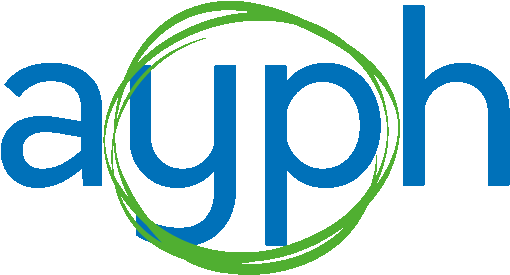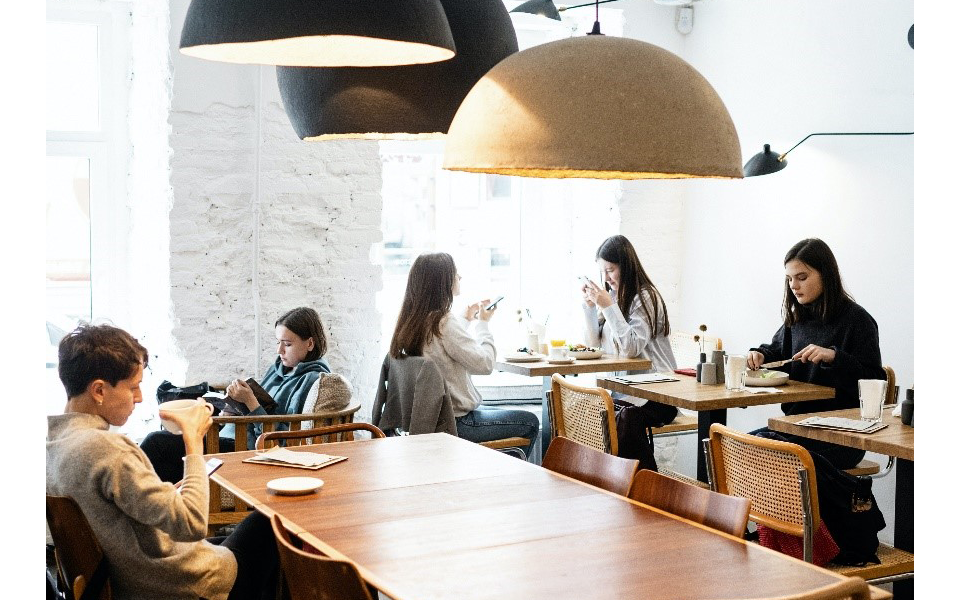Despite a huge focus on the cost of living crisis in the UK and the increase in food banks, we really do not know much about how food insecurity is experienced by teenagers, or the particular impact on their health and wellbeing. Yet there are many good reasons for thinking we need to be really alert to the impact on this age group.
Apart from anything else, adolescence represents the second fastest growth period after the first two years of life. Good nutrition is critical at this time as a basis for adult health. But also young people are in the transition to independence; we can start to make offers direct to them not just through their families Adolescence offers unique opportunities for intervention.
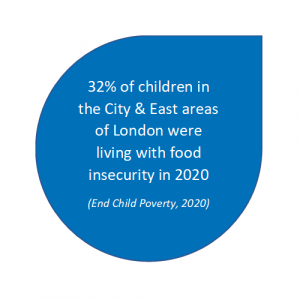 Back in 2021 Newham Public Health department formed a partnership with the Association for Young People’s Health and academics from the London School of Hygiene and Tropical Medicine to do some ground-breaking work on this topic. What we can do to help 11-19 year olds get good nutrition in the face of all the current threats? How are their experiences different to other age groups? Does this provide us with some new levers for action that improve things specifically for them?
Back in 2021 Newham Public Health department formed a partnership with the Association for Young People’s Health and academics from the London School of Hygiene and Tropical Medicine to do some ground-breaking work on this topic. What we can do to help 11-19 year olds get good nutrition in the face of all the current threats? How are their experiences different to other age groups? Does this provide us with some new levers for action that improve things specifically for them?
The project is running for three years in total, and is funded by the Health Foundation. We’re taking stock at the half way mark now, as we head into a new round of stakeholder engagement.
What we’ve learned
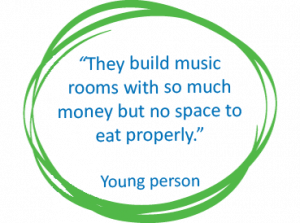 Three rounds of engagement with young people, discussion with partners, a review of the evidence and two sets of stakeholder engagement have revealed the reality of food insecurity among 11-19 year olds in Newham. Complex system mapping work led by our academic partners revealed how many factors are at play, but critically revealed two main places where there was room for interventions specifically for this age group. That’s at secondary school, and in the time just after school and at weekends when young people are in out-of-school provision.
Three rounds of engagement with young people, discussion with partners, a review of the evidence and two sets of stakeholder engagement have revealed the reality of food insecurity among 11-19 year olds in Newham. Complex system mapping work led by our academic partners revealed how many factors are at play, but critically revealed two main places where there was room for interventions specifically for this age group. That’s at secondary school, and in the time just after school and at weekends when young people are in out-of-school provision.
What we’re doing next
We’re going to be building on the existing Eat For Free scheme in primary schools by trialling something similar in 2 or 3 Newham secondary schools, as part of developing whole school approach to food with our age group.
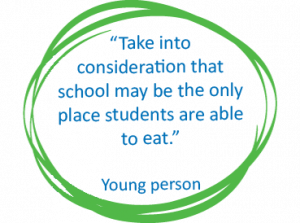 We’re also going to be working with two or three voluntary sector organisations and after school facilities to see what can be done in this arena too.
We’re also going to be working with two or three voluntary sector organisations and after school facilities to see what can be done in this arena too.
We’re planning more stakeholder engagement and potentially some kind of exhibition or roadshow to share the findings. We’ll be writing articles & briefings as well, summarising the learning.
Stay in touch!
Please do get in touch with us if you’re interested in learning more or can share information with us. You can email the team at lau.prieto@newham.gov.uk , or ann@ayph.org.uk
Ann Hagell – Research Lead, AYPH
